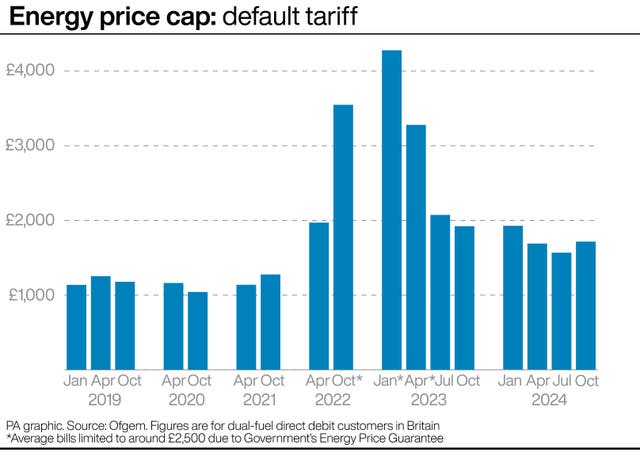Fact check: Labour’s pledge to cap energy bills expired in April 2023
The party promised in opposition that there would be no energy bill rises in October 2022 and January 2023, but that pledge does not apply to today.

Claims have circulated that the Labour Party promised to freeze energy bills over the winter.
It follows the announcement on Friday August 23 that bills for gas and electric will rise by around 10% from October 1 for the typical household.
Posting a screenshot of a Labour document, one social media user wrote: “Labour lied to you. Read the first sentence. The first bloody sentence!!”
That sentence reads: “Labour would freeze gas and electricity prices immediately to give people breathing space over the winter.”
Evaluation
The document highlighted is from August 2022 and was in reference to the following winter. The promised freeze on bills was set to last only until April 2023, a period when Labour was still in opposition and had no control over energy pricing or relief measures.
The facts
The document in question is called Labour’s Energy Bills Plan. It does not include when it was it was released, but it appears to have been created in August 2022.
The URL to the document includes “2022/08,” the filename reads “August-2022” and it was first archived on the Wayback Machine on August 18 2022. In addition, on August 17 that year the Labour Party released a YouTube video entitled Labour’s Energy Bills Plan”.
The energy price cap was introduced by the Conservatives in January 2019 and is set by regulator Ofgem to determine the amount suppliers can charge customers on their standard variable tariffs. It is adjusted quarterly to reflect market conditions.
Labour’s promise in the document was to keep the cap at £1,971 per year for a typical household between October 2022 and April 2023.

The predicted rise for the cap at the time was £3,582 from October to December, with another forecasted increase to £4,266 between January and March 2023.
That was close to the actual cap figure of £4,279.
Labour said in the document that its plan “would mean no rise in household energy bills until April 2023 at the earliest.”
The party’s promise in this document was therefore not intended to protect households in 2024.
Equally, even if it was still in force, Labour had said it would cap bills at £1,971, while Friday’s announcement from Ofgem will see a typical household billed £1,717 per year from October 1, which is lower than Labour pledged.
The Conservative government at the time protected consumers by promising that bills would not rise above £2,500 for the typical household until April 2023.
Labour formed the Government after winning the July 5 General Election and Friday’s announcement was the first price cap revision during its time in office.
Links
Ofgem – Changes to energy price cap between 1 October to 31 December 2024 (archived)
Labour’s Energy Bills Plan (archived)
YouTube – Labour’s energy bills plan (archived)
Ofgem – Customers urged to shop around as price cap rises because of global market (archived)





